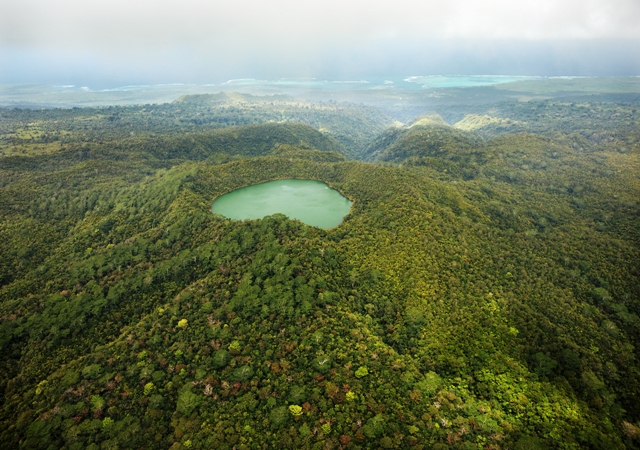
Biodiversity Conservation
 Lake Lanoto'o, Samoa. Image courtesy of Mr. Stuart Chape
Lake Lanoto'o, Samoa. Image courtesy of Mr. Stuart ChapeMessage from Mr. David Sheppard, Director-General, SPREP
"Talofa from SPREP in Samoa,
Each year we commemorate World Wetlands Day on 2 February, a birthday celebration of the Ramsar Convention on Wetlands, an intergovernmental treaty for the conservation and wise use of wetlands and their resources.
Fiji, Kiribati, Marshall Islands, Papua New Guinea, Palau and Samoa are the Pacific Island Contracting Parties to the Ramsar Convention. They are part of the 168 contracting parties that have 2,170 Wetlands of International Importance covering more than 2 million square kilometres worldwide.
This year’s theme for this special day is Wetlands and Agriculture: Partners for Growth.
We believe at SPREP that partnerships are the key to realising our vision – a sustainable Pacific that can sustain our livelihoods while maintaining harmony with the natural environment and our cultures.
We also believe that wetlands are a strong feature that can help link and achieve this.
Wetlands have long been the basis on which civilizations were formed and cultures nurtured, they have been a key resource for cultivating large qualities and foods.
In our Pacific islands the floodplains along river banks, rivers and streams, marshy swamps, lakes, estuaries and tidal flats as well as mangroves and coral reefs have traditionally provided communities with the fertile soils, water, plants, animals and other resources necessary to maintain food security and improve livelihoods.
Our cultural practices are also based on the plants and animals obtained from our wetlands.
Today, the search for more agricultural land including space for aquaculture grows as we look for answers to providing sufficient nutritious food for our planet’s growing population.
One response to the growing demand for food has been to drain, reclaim and convert wetlands to access highly fertile land with access to water.
However, in addition to damaging or destroying natural wetland systems and the services they provide, this conversion can also lead to reduced agricultural production in the long term as water systems degrade.
More and more as our wetlands change, so does their ability to nurture the plants and animals that depend on them. This in turn, means less food for the people who depend on wetlands for their livelihood.
Today roughly 2.5 billion rural people directly depend on agriculture, forestry, fishing and hunting for their livelihoods. We are part of the global community that makes up these numbers.
There are examples from around the world, and within the Pacific that suggest that it is possible to find a compromise – organic farming methods, integrated pest management, integrated water management and thoughtful planning to help ensure that agricultural practices do not adversely impact on the wetlands on which they rely.
If Pacific island communities are to be resilient to environmental change and able to sustain their livelihoods then we must recognise and protect the functions and economic values of wetlands in our planning for the production of food and other agricultural products.
It may be an overused statement but it is true to say that together we can make a difference. Let’s strengthen our partnerships this World Wetlands Day and take action to protect our wetlands that provide such essential services.
Celebrate World Wetlands Day!"